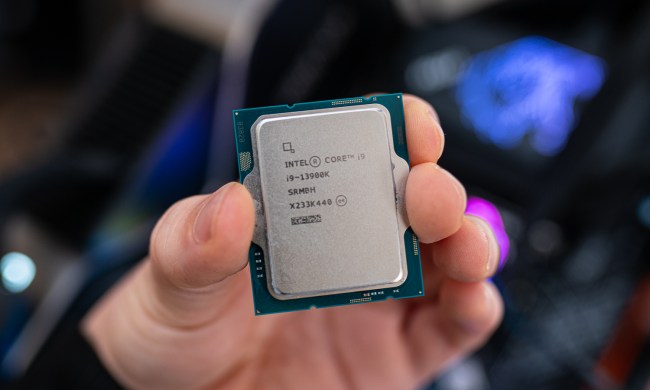The owners of Intel’s best processors have been dealing with instability issues for months. The first time a new microcode update rolled out, not only did we not see a fix, but we also saw performance drops of up to 9%. It’s no wonder that many users approached the latest BIOS update with caution. Luckily, based on various tests, it seems like Intel’s doing it right this time around so far.
Several testers and publications took the new 0x129 microcode update out for a spin, and while there are certainly some instances of performance drops, it’s really nowhere near as bad as a 9% dip on average.
The bad news? If your CPU is already crashing, the new update won’t help. It was made to prevent the issues from cropping up in processors that have yet to run into any problems. With that out of the way, let’s dig into results achieved by JayzTwoCents, a YouTuber who tested the Core i9-14900K with an MSI motherboard both before and after new BIOS updates.
JayzTwoCents tested the CPU in a number of benchmarks, and more often than not, the results were close to the same. The up-to-date system scored 38,077 points in the Cinebench R23 multi-core test, while the version running the 0x123 microcode update scored 38,006 points. Single-threaded scores turned out similar, with 2,336 points for the non-updated CPU and 2,345 points after the update.
The previous BIOS version scores a small lead in Cinebench R24, though, with 2,136 points versus 2,124 points in the multi-threaded test. It’s something, but it’s really around a 0.6% difference — nothing to write home about.
The Geekbench CPU test is similar, with a small drop for the new BIOS (20,169 points versus 20,003). JayzTwoCents also tested the CPU in Handbrake to see whether there was any impact on rescaling workloads, and the result was within the margin of error, with 59 seconds for the 0x123 patch and 60 seconds for the 0x129 patch.
The only really significant difference was in the TimeSpy Extreme CPU test, where the pre-update score was at 11,941 points, but the post-update test only returned 11,264 points. It’s nothing that you’d notice in day-to-day use, but it no longer classifies as “almost the same.”

Things are a little less peachy when it comes to gaming. Although the CPU averaged about the same in Shadow of the Tomb Raider, testing in Cyberpunk 2077 revealed a drop in frames per second (fps) — from 236 fps down to 229 fps at maximum, and from 190 fps to 186 fps on average. Would any of us be able to notice if we were playing the game? No chance, but it’s still there.
While less widely used, the Core i9-14900K was also tested in various workloads on Linux by Phoronix, to compare the performance impact on that operating system. At a glance, those benchmarks don’t look as great as what JayzTwoCents was able to achieve. The greatest performance loss was in the WireGuard + Linux networking stack stress test, which saw an 11.8% drop. Overall, Python scripting benchmarks didn’t go well for the CPU.
The long list of benchmarks also features several performance gains, though, and many of the tests only resulted in a small, insignificant difference between 2% and 5%. Phoronix’s Michael Larabel summed it up: “In the 100+ other benchmarks, there was no measurable performance difference or just falling within the 1% to 3% range that may be system noise and other factors.”
After months of silence, it feels like Intel might finally be about to catch a break. While this BIOS update will not save CPUs that are already crashing — those will need to be returned to take advantage of the extended five-year warranty period — it might prevent more damage in CPUs that are yet to struggle. If the patch actually helps, a barely noticeable performance drop could be an acceptable solution that might help keep Intel afloat.



